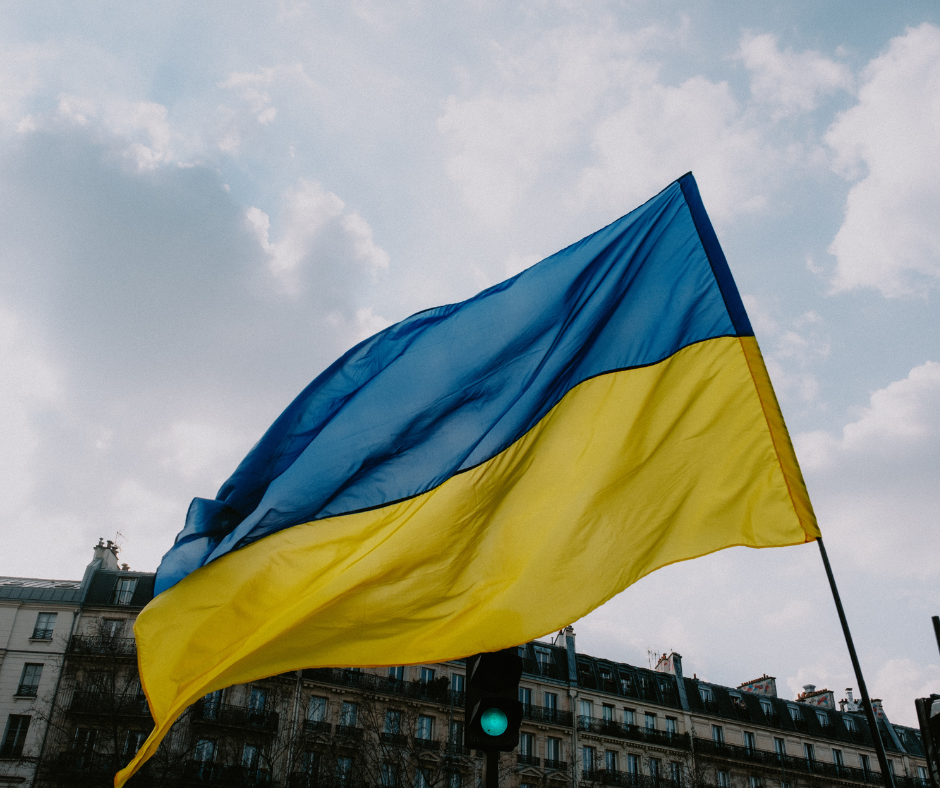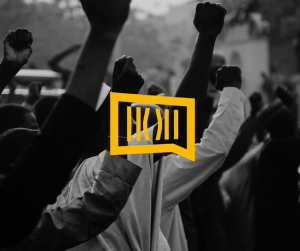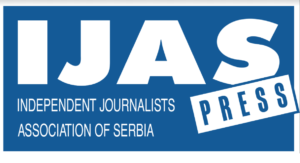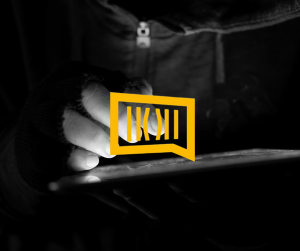Russia launched two massive attacks in Ukraine between 29 December 2023 and 2 January 2024, which injured three journalists and damaged four newsrooms. The International and European Federation of Journalists (IFJ-EFJ) condemned the attacks in the strongest terms and expressed solidarity with the media workers targeted.
On 30 December 2023, two employees working for the German TV channel ZDF were injured by the shelling of the Kharkiv Palace Hotel which was mostly occupied by media workers at that moment. As a result, a security guard of foreign nationality who was working as a security advisor to ZDF, had to undergo an operation at a local hospital and Svitlana Dolbysheva, a ZDF producer, was transferred to a Kyiv hospital. She suffered a head injury and a concussion, as well as fractured vertebrae and ribs. Her condition is now stable.
“Since April 2022, I have been cooperating with various international media and visited various frontline and dangerous positions. But I got wounded where I least expected it,” Dolbysheva told the National Union of Journalists of Ukraine (NUJU).
She recounted the details of the attack: “My colleagues and I finished work and agreed to meet for dinner at 7 p.m. in the lobby of the hotel. I did not hear the air raid alert as at the time when it was announced, I was in the bathroom. Then I got dressed, went down to the first floor, and sat down to wait for my colleagues. The explosive wave threw me back, I started to crawl, and there was a second arrival, from which everything rained down even harder. I was very scared”. She eventually managed to reach the hotel’s underground shelter, where she received emergency medical treatment.
On the same day, in Kharkiv, the Radio House, which serves as the local office for Ukraine’s public broadcaster Suspilne and for Ukrainian Radio, which is part of Suspilne, was also struck. In the building, the windows were blown out, and the heating system, doors and walls were damaged, making it impossible to carry out any further activities. No journalists were wounded in the strike.
In addition, the newsroom belonging to the Obiyektyv media group in the centre of Kharkiv was also hit by the shelling, which shattered windows and damaged studio, editing rooms and equipment. According to NUJU, the media group is currently in dire need of equipment that allows remote work.
In Lviv, Pavlo Dak, the editor of the Vholos news agency, was injured during a massive rocket attack on 29 December 2023. He suffered a minor head injury. Emergency doctors gave him first aid and he does not need further medical assistance.
In Kyiv, on 2 January, the newsroom of the national media company NV had to postpone its broadcasts for several hours following a Russian strike. The radio station plans to set up an emergency studio in an underground shelter.
Commenting on the latest attacks, Sergiy Tomilenko, the NUJU President, said: “Over these five days, a large number of journalists and newsrooms were hit simultaneously, targeted by Russian missiles. This is a very bad trend and a new challenge for the media environment. In these difficult times, we need the support and solidarity of the global journalistic community more than ever.”
“We stand in solidarity with all the journalists and media workers in Ukraine who continue to work despite fear and difficult material conditions. This is possible thanks to the Journalists’ Solidarity Centers’ network (JSC) set up by the NUJU, which is providing emergency assistance to journalists and media outlets. This work is of vital importance”, said EFJ General Secretary Ricardo Gutiérrez and IFJ General Secretary Anthony Bellanger.
About JSC network
The network of Journalists’ Solidarity Centers was launched in April 2022 in three cities of Western Ukraine – Lviv, Ivano-Frankivsk, and Chernivtsi. In July 2022, the network’s head office in Kyiv and front-line centers in Dnipro and Zaporizhzhia were additionally created. In December 2023, a new front-line JSC in Kharkiv was founded under UNESCO‘s International Program for the Development of Communication and the People of Japan. The network was created by the NUJU, EFJ, and the IFJ and is supported by UNESCO.
Source: EFJ




